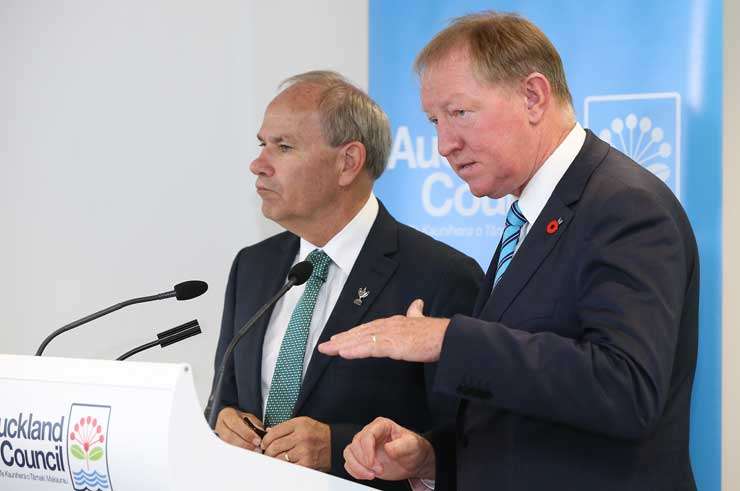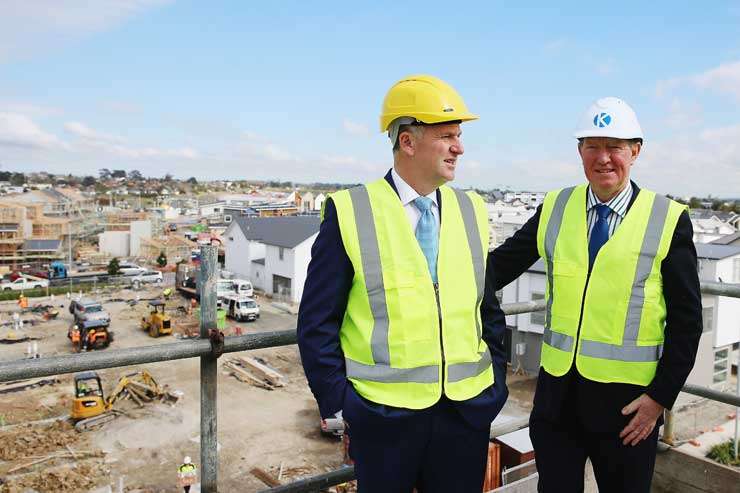Nick Smith was the housing minister for National from 2012 to 2017. He talks to Catherine Masters about tackling the housing crisis at a time of changing migration.
Q: What did you walk into when you took over housing?
National's focus from 2011 was to drive supply. When I came into the housing portfolio, we were building only 13,000 houses per year. From 2011 to 2017 we were able to achieve a growth rate in new home construction of more than 20 per cent compound per year, taking it to 31,000 homes a year when we left government. I'm not sure you can grow a sector as large and complex as housing much faster than that.
What was under-estimated in 2010 or 2011 was the sharp turnaround in New Zealand's net migration. Many commentators think it was a change in immigration policy; it wasn't. The number of residency and work permits issued was quite constant - it wasn't a big change from the Clark government to the Key government. What radically changed in 2010 and 2011 was a huge switch in the net migration movements of New Zealanders. Rather than a net outflow of about 30,000 per year to Australia and further afield it balanced out. As a consequence, we started to see house prices and demand shift in 2011.
Start your property search
Q: What were your achievements?
I'm most proud of rewriting the Auckland Unitary Plan. We walked a tightrope in fast-tracking the rewriting of Auckland's housing rules between not quickly addressing the fundamental problems that were restricting housing supply in that market but conversely antagonising residents over not being given a fair enough opportunity to address the rules that would change their neighbourhood. Labour argued strongly against the fast-track of the new Unitary Plan.
Q: You took some criticism, though.
I don’t know if you remember the signs that Labour put up about me throughout Auckland. They had those big hoardings up, “Keep out of Auckland/ Nick Smith, not your business” at the same time as they were beating me up about the problems of housing affordability and supply. Actually, fixing Auckland’s Unitary Plan was pivotal to getting on top of the city’s housing issues.
Q: Is there more agreement between the parties now?
I nearly choked in Parliament when Housing Minister Megan Woods was challenged over KiwiBuild. She said it was a lot more complicated and recited exactly the same five points that I had made over what was key. Despite the political machinations, there’s actually a reasonable degree of political consensus that those five things - planning rules, infrastructure, trained personnel, innovation and building materials, and support for first home buyers - were our housing policies. They have largely been accepted by the Government.

Smith and Auckland mayor Len Brown announce an initiative in 2015 to accelerate the delivery of housing across Auckland. Photo / Getty Images
Q: So why have house prices been skyrocketing regardless?
I think the Government made an awful error last year in providing $30 billion of very cheap capital to the banks. That has largely gone into the housing sector and fuelled an extra 20 per cent of house price increase.
Q: But for a long time prior to Covid, and despite your work with the Unitary Plan, weren’t prices going up?
There is no question that from 2011 particularly to about 2016, if you looked at the migration flows to New Zealand and the rate of houses being built, we were building up a gap. We were pedalling as fast as we could and growing that housing supply but the immigration numbers moved far more dramatically than it was possible to build houses.
Q: Is the housing problem really all about supply and demand?
Fundamentally, yes - but it is not as simple as that. It's a really complex range affecting house price rises, a key one more recently being the supply of cheap credit.
Q: You, and other National Party politicians, denied there was a housing crisis – was there?
I just thought a huge amount of political energy was burned up over whether you call it a crisis or not rather than debate on the planning laws that would have made a material difference. Word games are not going to solve the problem.

Smith and Prime Minister John Key on a visit to the master-planned development in Auckland's Hobsonville Point in 2014. Photo / Getty Images
Q: Any regrets from your time in the portfolio?
No. I’m proud of the initiatives we took, particularly around the rejig of the Unitary Plan but also schemes like KiwiSaver HomeStart and the investment in infrastructure.
Q: What should have been done differently?
You always wish that you could pull those levers quicker. The nightmare of the last [National] government was never having a majority and never being able to advance key changes to the Resource Management Act as quickly or as thoroughly as we would have wished. But the levers that we were pulling around planning and infrastructure, and through both growing the workforce through apprenticeships and building material innovation, were the right levers then. They are the right levers now if we are to get on top of the problem.
Q: Did housing take a toll on you?
I was working hideous hours trying to drive those things. It was the most stressful of the 14 portfolios I had. Complete frustration at the 2014 and 2017 election became a competition over the soundbite of KiwiBuild - I look back with irony at how badly that policy has failed. I enjoyed the role and it was great to be part of the Key Government.











